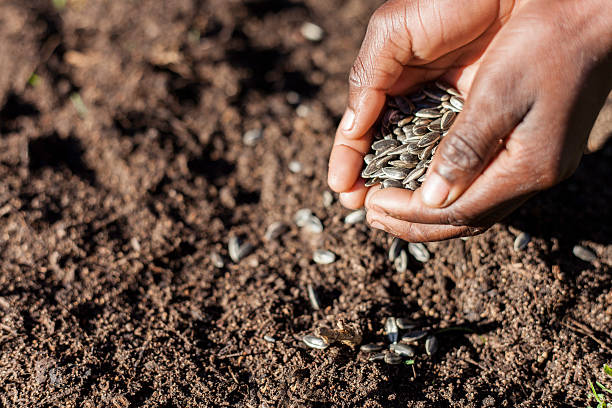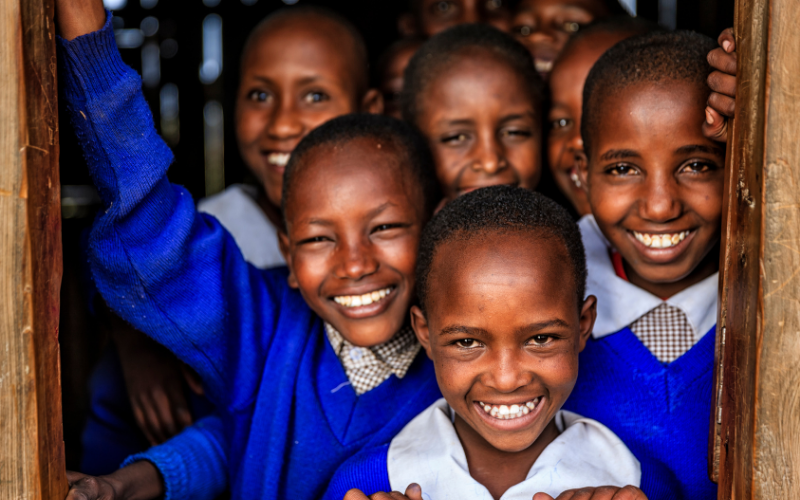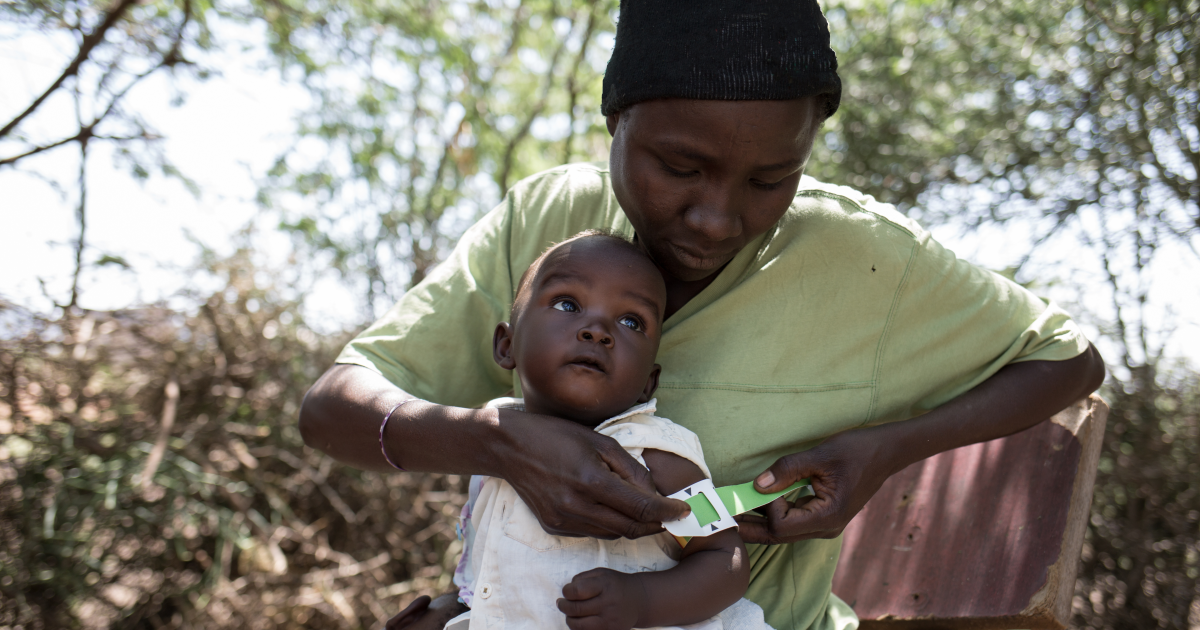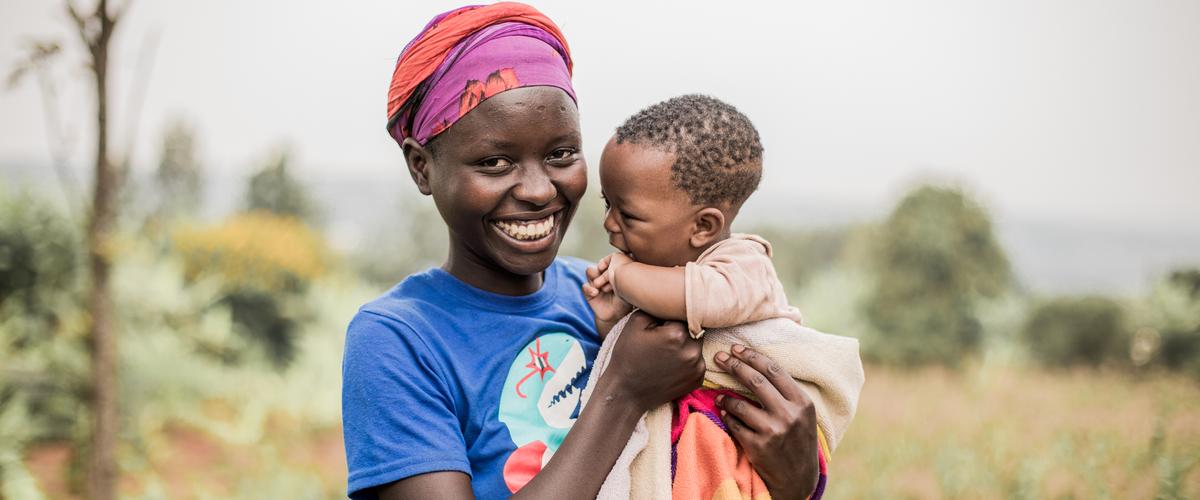
The Seeds of Change Initiative (SOCI)
Locally produced and traditionally processed foods, rooted in indigenous knowledge, are vital for strengthening food and nutrition security in Africa. Indigenous food crops are naturally rich in essential nutrients and bioactive compounds that promote health, while also being well-adapted to local environmental conditions. Many of these crops exhibit strong resistance to climate-induced stresses and provide significant economic benefits to smallholder farmers. Traditional farming practices, seed selection, and processing techniques—passed down through generations—enhance the nutritional value, preservation, and sustainability of these foods. Harnessing locally grown and wild food crops, alongside indigenous knowledge systems, can improve food security, enhance dietary diversity, boost health outcomes, and generate income for communities. This review examines the key factors contributing to food insecurity in Africa and explores the nutritional and health benefits of commonly cultivated indigenous foods. Additionally, we highlight traditional food processing techniques that maximize their value, as well as farming and agribusiness strategies that can promote their widespread cultivation. In conclusion, ensuring the sustainable production and processing of these foods is critical for long-term food security in Africa. Therefore, empowering local farmers, integrating indigenous knowledge into modern agricultural systems, increasing research investments, and formulating national and regional policies that prioritize indigenous food systems are essential steps toward improving access to nutritious, locally available foods.
Countries
Kenya
The problem
Recent development in the field of agriculture and rural development has seen a steady rejuvenated recognition of indigenous knowledge for sustainable development. However, this recognition has not downplayed the role that modern scientific knowledge has played. It is therefore justifiable to advocate for a marriage-of-convenience between the two knowledge systems for effective output and eventual sustainability. The role of indigenous knowledge in sustaining the livelihoods of Kenya's poorest people has often been neglected in the agricultural and rural development sector. The use of local knowledge in enhancing food security and improving agricultural productivity, however, is increasingly becoming an important issue in the SOCI Project in Kenya. According to FAO, ‘food security’ means that food is available at all times; that all persons have means of access to it; that it is nutritionally adequate in terms of quantity, quality and variety; and that it is acceptable within the given culture’. Food security activities in essence emphasise food production and improved access to food in a locality. In the context of the SOCI Project at rural Kenya, the concern with food security is at the household level. Since agriculture has been seen as the vehicle through which poverty can be alleviated, it goes without saying that agricultural production must be enhanced to ensure not only food security for the people, but to see the village transition from simple subsistence to self-sustaining commercial activity in line with the initial goal of the SOCI. Indigenous Knowledge can help to alleviate poverty if it is effectively applied in agriculture and supported by appropriate technology interventions that consider peoples’ circumstances. Sustainable productivity of crops for food security usually entails efficient utilization of locally available resources. This includes the utilization of abundant traditional (local) knowledge in crop production such as internally derived inputs, recycled nutrients, crop rotations, improved management of pests and diverse cropping. It is unlikely that the intervention of the SOCI will lead to food security on its own without taking cognizance of the role of indigenous knowledge.
On the other hand, Sub-Saharan Africa's population continues to increase significantly. In Kenya, the strong population growth with an average annual growth rate of 2.3% (United Nations Department of Economic Social Affairs Population Dynamics, 2021) has led to increasing demand for food and increased use of natural resources. As in many African countries, Kenya's population will double by 2050. However, 36.8% of the population or more than 18 million people in Kenya, live below the poverty line of 1.9 US dollars a day, the population faces a critical challenge; food insecurity. Diets often lack essential nutrients, leading to health complications. While modern agricultural solutions are explored, a powerful, yet forgotten, answer lies within traditional knowledge systems – African Indigenous Vegetables (AIVs).
Keywords: Food Security, Indigenous Knowledge, Sustainable Development, indigenous foods, traditional foods, climate resilience, Africa, food security, sustainable development goals,
fermentation
What is this project doing?
This project focuses on reviving indigenous knowledge, promoting African Indigenous Vegetables (AIVs), and establishing community seed banks to enhance food security and climate resilience. By integrating traditional farming practices with modern agricultural innovations, the project seeks to preserve and utilize indigenous food crops that are well-adapted to local conditions. The initiative also strengthens seed sovereignty by ensuring that farmers have access to diverse, high-quality seeds through community seed banks. These efforts contribute to improved nutrition, economic empowerment for smallholder farmers, and the sustainability of local food systems.
Key activities include promoting AIVs among consumers, encouraging the adoption of Good Agricultural Practices (GAP) by vegetable growers, providing training in value addition and business skills, and developing new varieties from local landraces. Additionally, advocacy efforts aim to influence policies that recognize the need for a pluralistic seed system integrating both informal and formal sectors.
Results
The project has achieved significant milestones, reaching over one million consumers and growers through targeted promotional activities. Training programs on Good Agricultural Practices (GAP) have led to substantial productivity improvements among farmers, enhancing both yield and quality. The collection and classification of local landraces of African Indigenous Vegetables (AIVs) in Kenya have laid the groundwork for developing improved varieties, ensuring long-term benefits for both growers and consumers.
A key achievement of the project is the revival of the lost glory of indigenous knowledge in agriculture. By integrating traditional farming wisdom with modern innovations, the project has empowered farmers to adopt time-tested methods such as intercropping, organic soil enrichment, and natural pest control. Community seed banks have been established to preserve and share indigenous seeds, reinforcing seed sovereignty and ensuring the availability of diverse, climate-resilient crops.
Policy briefs and advocacy efforts have addressed key challenges in the seed industry, successfully lobbying for a more formalized and inclusive seed business. Additionally, the establishment of 'Innovation Platforms' has fostered collaboration among stakeholders, enabling the identification and resolution of bottlenecks in the AIV seed and crop value chains. These platforms facilitate collective planning and the implementation of sustainable solutions.
500+
People Impacted
5
Communities Served
100%
Sustainable
Related Projects
Discover other initiatives making a difference in communities around the world

NIKUZE Smart Start _ Kenya Project
We are building, with Women, For Women! Kenya is currently grappling with inadequate childcare and rising burden of malnutrition, especially …
Learn More
BWI Nutrition Mapping and Integration Project
Blooming World International (BWI) is proud to participate in the BWI Nutrition Mapping and Integration Project, a transformative initiative aimed at …
Learn More
The Maternal Health and Child Survival Program (MHCSP)
Empowering Health Systems and Communities to Save Lives At Blooming World International, we are proud to partner on the Maternal …
Learn More